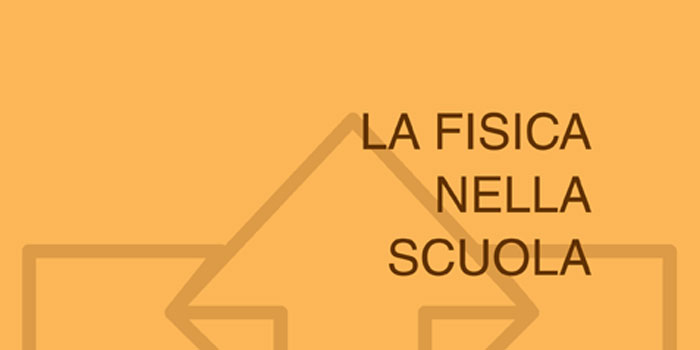Articoli rivista
 Anno XXXVII - n.4 - ottobre/dicembre 2004
Anno XXXVII - n.4 - ottobre/dicembre 2004 Una misura del calore prodotto per attrito
This paper describes a simple method for measuring the heat developed by friction, in which a thermometer in used as a calorimetric device. […]
 Anno LVI - n.2 - aprile/giugno 2023
Anno LVI - n.2 - aprile/giugno 2023 Una misura del raggio terrestre per turisti
In the Tuscan Archipelago it’s possible to make an approximate measurement of the Earth’s radius from the Elba Island using the Pianosa Island as a ship that appears and disappears on the horizon depending on the observer’s height above sea level. […]
 Anno XXV - n.2 - aprile/giugno 1992
Anno XXV - n.2 - aprile/giugno 1992 Una misura della densità dell’aria
We describe, in this paper, a measurement of the density of air, using the equation of state for gases and Archimede’s law. […]
 Anno XXIV - n.4 - ottobre/dicembre 1991
Anno XXIV - n.4 - ottobre/dicembre 1991 Una misura didattica del flusso di energia radiante
In this article radiant energy flux is measured referring the temperature of a small blackened body to the temperature of a similar reflecting body. The reliability of the method is checked using electric lamps of different power output. Then the apparatus is used for measuring the efficiency of a solar cell, […]
 Anno XXXIII - n.2 - aprile/giugno 2000
Anno XXXIII - n.2 - aprile/giugno 2000 Una misura semplice di π
A very simple experiment allowing to measure π is presented. No particular equipment or theoretical knowledge is required. The experiment could be performed during one of the first laboratory activities in a physics course. […]
 Anno XXVIII - n.4 - ottobre/dicembre 1995
Anno XXVIII - n.4 - ottobre/dicembre 1995 Una misurazione elettrolitica della carica dell’elettrone
A simple electrolytic experiment suited to students’ practical work allows to find an approximate value for the charge of the electron in a relatively short time and without having to make sensitive direct measurements of mass with 1 mg scales, not easily found in school labs. […]
 Anno XLI - n.4 - ottobre/dicembre 2008
Anno XLI - n.4 - ottobre/dicembre 2008 Una proposta di introduzione storica intuitiva ai concetti entropici
Although irreversibility is an intuitive concept in many respects, formal approaches to entropy in secondary school physics are difficult to understand. The paper illustrates an historical approach based on Sadi Carnot?s hydraulic analogy (1824) between spatial and thermal levels. In analogy with a reversible hydraulic wheel, […]